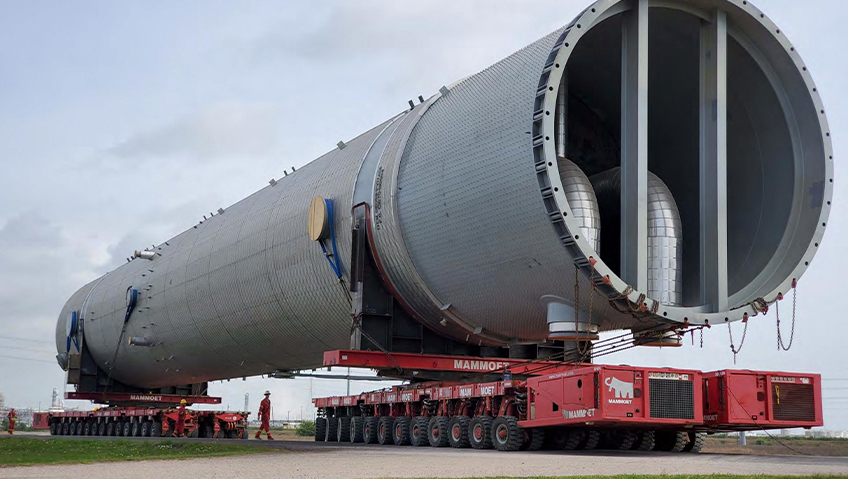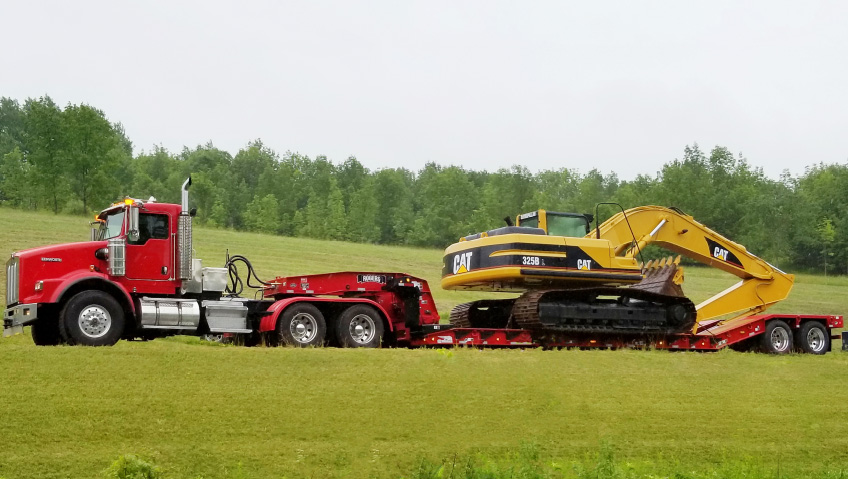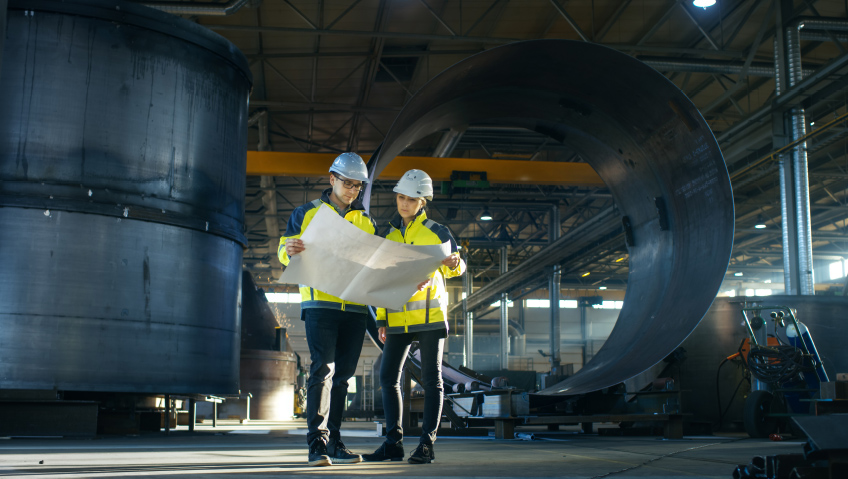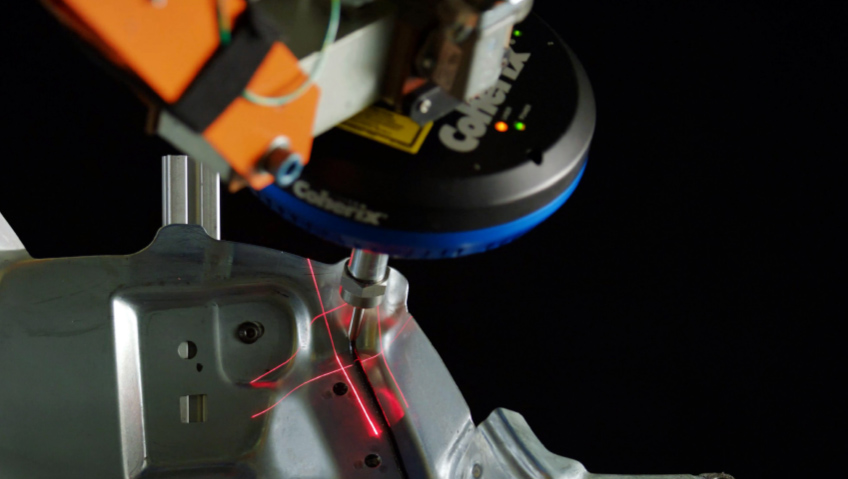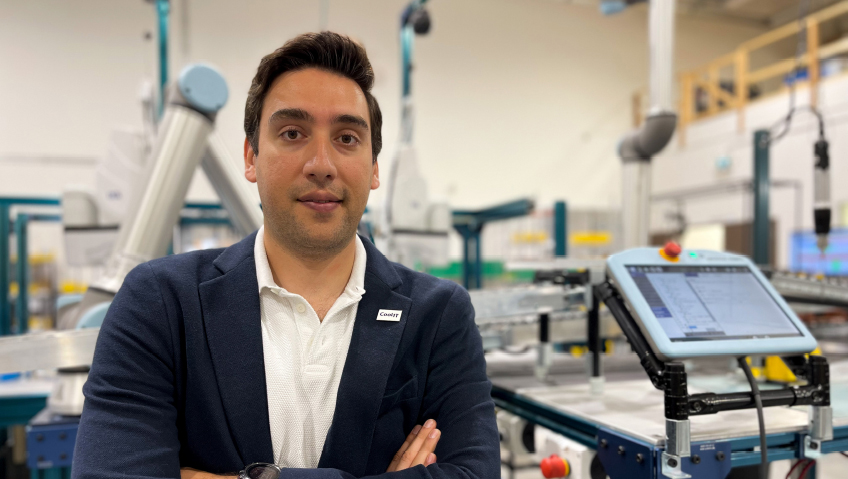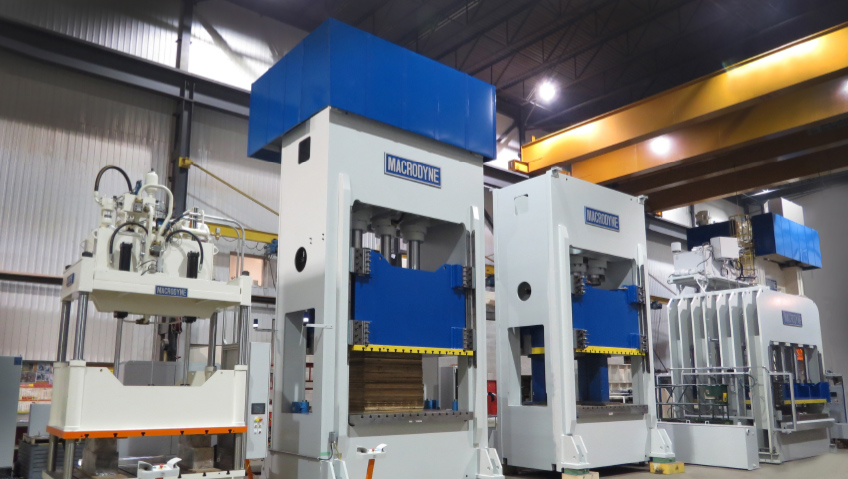First, the nitty gritty. With more than 60 years of experience, Freeport Welding offers outstanding, innovative fabrication and maintenance services to marine, refining, and petrochemical industries.
The company provides custom fabrication of ASME pressure vessels and API tanks, skids, cyclones, ductwork, and heavy plate fabrication. Its vast Texas facility enables total fabricated-weight capacities of up to 500 tons and accommodates diameters with dimensions of up to 26 feet (7.93 m).
Add to that the attention to detail in even these awe-inspiring jobs where the company’s standing challenge to itself that ‘We keep tighter tolerances, achieve better fittings, and as a result, get better welds,’ plays a big part in the phenomenal success rate of their fabrications.
And of course, don’t forget the exceptional customer service.
Pushing technology forward
The plant – conveniently located between the Port of Freeport and the Union Pacific Railroad in the heart of Freeport, Texas – enjoys direct access to the Intracoastal Waterway, allowing it to be reached by train, highway, vessel, or barge.
With its major business the fabrication of pressure vessels (the company boasts qualification in more than 1,500 welding techniques, and ASME Code Stamps U, R, U2, & NB), Freeport is dedicated, as an industry leader in technology, to researching and developing new methods, tools, and procedures that streamline the fabrication process to the benefit of everyone.
To that end, the company has established what it refers to as a 21st century fabrication production system, which entails a complete re-engineering of the fabrication process, including logging inquiries, estimating, generation of quality production plans, inspection reports, schedules and cutting parts.
The system employs industry-leading computer technology with 50 networked computers, three of which are located in the shop.
In its ongoing drive to produce products that fulfill the needs of clients, both internal and external, at reasonable and competitive costs, Freeport Welding also strives to provide a clean and safe working environment for all employees, as well as the facilities for continued research and the creation of innovative methods, equipment, and procedures while streamlining the fabrication process.
Re-inventing operational software
In keeping with this commitment to innovation, in 1985 Freeport Welding started developing, its own operational software.
To achieve cost-cutting and quality-control objectives, Freeport realized it needed a computer software application to act as an integrated control system, one that would gather all relevant information from across the organization and make it accessible to all – management, estimating, accounting, scheduling, safety, quality control, and supervisory workers, via a computer network.
It was immediately clear that there were no existing applications that could meet its requirements, hence the initiative that has resulted in the company’s own super-application, JobTrax®.
“Our Critical Process Management System, which works in tandem with JobTrax®, has put us miles ahead of ISO-based fabricators,” says President Roy Yates.
“We work for all the major refiners, chemical companies, and EPC firms in the United States, as well as a number of international firms. Most people have lost faith in ISO and now conduct their own quality audits; after seeing ours, we were never asked to seek ISO accreditation.”
Application development and enhancement are still ongoing, and the company employs a full-time systems developer who has spent the past 20 years working on the project.
JobTrax® performs numerous functions including customer / owner purchasing, technical, quality rep database, work orders, estimating, purchase orders, vendor database, drawings, scheduling, non-compliance reports, and payroll. With direct access to about 60 network users in the organization, management has complete access from their homes.
Doing it with Dow
Freeport was also sought after to join the “Dow Supplier Partnership Program” by Dow Chemical in the mid-90s, in which they were to conduct quality improvement steps comparable to ISO, but also cost-cutting initiatives, says Yates.
With the goal of cutting expenses while also improving the quality of goods and services given to the corporation by its global suppliers, Dow had contemplated requiring suppliers to get certified to an ISO standard, but determined these requirements wouldn’t effectively achieve its goals, particularly in cost management.
Freeport Welding was one of around 13 fabricators originally included in the list. Over the years, the program has undergone several adjustments, with numerous other companies launching similar initiatives.
The two ventures have proven to be useful to the company, and almost every major chemical, oil, engineering, procurement, and construction (EPC) company in the United States, as well as several overseas companies, has accepted Freeport as a fabricator.
The manual on quality
More than just a job management system, JobTrax® is also a complete business management system, and its Quality Manual section comprises all of Freeport’s Critical Process operating procedures – approximately 800 of them – such as engineering, estimating, drafting, document control, purchasing, safety, health and environmental regulations, and employee policies, totaling 1,927 line items.
The procedures falling under Critical Process, which have been established and refined over the past 40 years, are critical to the operation of Freeport Welding. The philosophy that has emerged over the years is that while the company has highly knowledgeable and competent workers, they must all operate within strict operating systems, as outlined in these documented procedures.
JobTrax® enables quick, up-to-date communication between departments as well as comprehensive recording of fabrication, welding, and quality operations.
Freeport documents and saves every step of these operations in the huge databases of its servers. From 1985 on, they have records on every job ever performed with the capacity to retrieve any recorded information in seconds. “Continuing to develop our software business is definitely a milestone in the upcoming years,” says Yates.
Conquering Horn Mountain
That experience and innovation has sourced impressive results, including the company’s work on producing Horn Mountain spar’s upper riser stems and deck stopper assemblies to exacting specifications.
Production risers for each of the eight producing wells and the two water injection wells installed on the Horn Mountain truss spar were of record length, but the riser assemblies were installed offshore without delay, with Freeport’s ability to meet exacting specifications and close tolerances facilitating the installation. Each upper stem / deck stopper assembly required cutting-edge welding technology and a large, covered shop space with generous overhead crane capacity.
This specification was met in the company’s 54,000 square-foot facility where the six overhead cranes in the 300-foot-long (91.5 m) main shop area were configured uniquely to fabricate and assemble the various components while maintaining the required close tolerances.
Freeport’s established rail transport system also benefitted the fabrication of the Horn Mountain riser components, permitting movement of each component through the fabrication bays under cover, outdoors for exterior preparation and coating, and then back under cover for final assembly.
The combination of multiple stages of the huge and cumbersome assembly simultaneously in production, as well as time-sensitive completion goals, generated significant logistical issues, says Yates. However, Freeport’s welders performed the task with a minimal number of repairs, and throughout the fabrication, assembly, and testing processes, the teams implemented critical process controls to ensure that quality was maintained and recorded.
As the final assembly of the riser systems was to be performed offshore, where accurate interface was crucial, meeting the Horn Mountain project’s fast-track delivery timetable was critical, as was compliance with all quality and dimensional criteria, he adds.
“The bottom line is that everything fit, and we delivered on time,” says Yates. “Our operating philosophy is clear: ‘When nothing but top quality, performance, and know-how will do.’”
Challenge and growth
Along with successes, Freeport has faced its share of challenges, particularly in the past few years, but has handled them admirably. “There have been challenges for sure, but the biggest ones have been dealing with foreign competition, and, of course, the virus disaster,” Yates says.
Overcoming these obstacles, Freeport relies on the dedication of its staff to quality product, and experienced teams who make every obstacle a spur to innovation, and service a priority.
“We have many skilled and knowledgeable employees who have been here for a long time. We’ve written procedures on all our processes, and have very extensive training and controls,” Yates says.
The company has gone through many changes and immense growth over its impressive time in the industry since inception in 1958, including a second shop purchased in 1977 in Clute, Texas; entering into a property swap with Dow Chemical and Port Freeport in 1998; and acquiring the 26.22 acres that it presently occupies inside the Freeport storm-protection levee system.
In 2000 the company built a 15,600 square-foot shop on the new property, plus an office building and garage. The second phase of the shop (15,600 square feet) came in 2006, the third phase (5,200 square feet) in 2008, and the fourth phase (20,000 square feet) in 2009.
Now boasting more than 150,000 square feet of floor space, a weight capacity of over 500 tons, a painting booth, and a shipping / receiving building, the premises house every tool necessary to produce a flawless finished product.
That impressive growth should continue as the company expands its network of the approximately 90 computers that generate quick, up-to-date communication between departments. With all its drawings, computations, layouts, and details computer-generated, and all components cut straight from those drawings on an NC burning table, nothing is laid out or cut by hand in the shop.
Specializing in completing urgent-turnaround jobs in a timely and efficient manner, Freeport can flame cut, roll, and bend practically any material without relying on outside sources, says Yates. All 15 of its important processes are flow-charted, with thousands of documented procedures built over many years of experience.
“We keep tighter tolerances, achieve better fittings, and as a result, we get better welds.”

